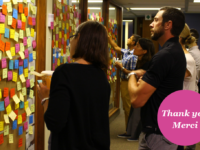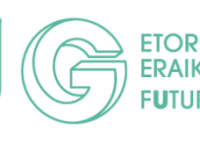The council of the London Borough of Barking and Dagenham is committed to ensuring no residents are "left behind". The population of the borough experiences the highest level of deprivation in the London and has historically struggled with many social and environmental indicators of success. Coupled with central government mandated austerity, the local authority required a strategic decision-making tool to illustrate at a community level where the most investment is needed to improve outcomes.
Innovation Tag: Futures and Foresight
The Government Digital Service and the Ministry of Housing, Communities and Local Government launched the Local Digital Declaration to support and unite local authorities around a shared understanding of good digital practice.
It is a unique call to action that addresses the legacy IT contracts, isolation of procurement practices and siloed digital projects that have left local government services vulnerable to high delivery costs and low customer satisfaction for the public they serve.
Globally, public procurement is in desperate need of reform and must embrace the tools, techniques and culture of the digital age. It’s a government’s top corruption risk as it’s where money and discretion collide.
The UK has begun to address this; GDS is leading the Global Digital Marketplace project, which is embedding user-centred, design-led, data-driven and open approaches across digital, data and technology planning, procurement, contracting and service delivery.
With the drafting of its first Constitution, Mexico City had a great opportunity: to explore innovative ways of crowd-sourcing this historic document, setting an example to other cities in the world on how to design important democratic experimentation at the scale of a megalopolis. The result of the entire Constitutional process is a forward-thinking document with progressive social policy and human rights at its heart. It became a legal reality in September 2018.
The Lab is an all-of-government neutral space enabling agencies to collaboratively innovate to make it easier for people to access government services. It's a design & development lab to experiment, drive and enable the systemic change of government for the benefit of society. We are providing a way to direct public funding to systemic improvements, horizontal efforts around shared goals, capability uplift, high value reusable components and actionable innovation for all participating agencies.
The Finnish Government has piloted a new innovative operating model based on co-creation and networking widely within the society. This so-called ‘The Ecosystem Forum’ aims at boosting human-centric digitalisation policy and data economy. It is a new way to formulate policies, prepare decisions and improve implementation. The forum is led by the State Secretary at Prime Minister's Office. In addition, the Prime Minister's Office has an active role in the facilitation of the network.
Over a third of U.S. federal employees are eligible to retire in the next five years, yet only 6% of employees are under 30—a pressing issue given the rate of innovation. Piloted as an effort between agencies and a student-led nonprofit, the Civic Digital Fellowship recruits the next generation of technologists—students and recent grads—pairing them with in-need agencies. It has scaled to six agencies, and is an attractive on-ramp for technical students into public service.
The OEE established a Social Innovation "UnLab" (SIU) to test an embedded innovation model and amplify energy efficiency policy and service impacts in Canada. The SIU creates value for energy efficiency stakeholders in three ways:
Building relationships and capacity for energy efficiency policy and service innovation;
Generating evidence and collective learning by co-creating and testing insights and interventions;
Amplifying impacts by scaling learning and implementing what works.
The Provincial Council of Gipuzkoa presents the program entitled Etorkizuna Eraikiz (Building the Future) as an innovative program for a more open and collaborative governance. Etorkizuna Eraikiz incorporates public deliberation with the citizenship for the design of public policies, ensuring the effectiveness, efficiency and plurality of this participation. The program consists of an active experimentation exercise to develop the future of the territory.
The Republic of Estonia is the first country to offer e-Residency— a transnational digital identity available to everyone in the world interested in managing a location-independent business. E-Residency enables secure and convenient digital services that facilitate credibility and trust online.


